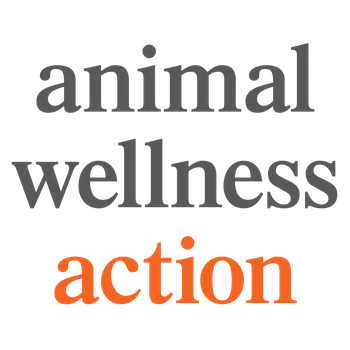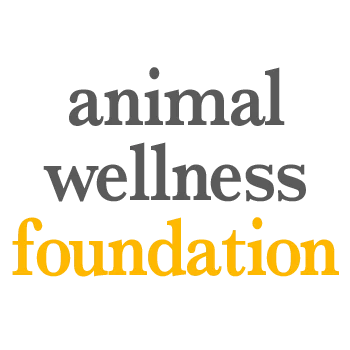Press Release



Contact:
Scott Beckstead • 541-530-3460
sbeckstead@centerforahumaneeconomy.org
Oregon Bill to End Mink Farming, Compensate State’s Few Remaining Producers
Salem, Ore.— Oregon state Sen. Floyd Prozanski introduced a bill this session to phase out mink farming in the state by the end of the year.
The legislation, Senate Bill 832, follows similar actions taken by Ireland and the Netherlands to permanently close all mink farms and discontinue mink-breeding programs in order to protect public health against the spread of COVID-19 and other diseases. A report published in Science in January determined that the virus is transmissible between mink and humans.
The legislation, which is supported by Animal Wellness Action and the Center for Biological Diversity, includes programs to assist Oregon mink producers’ transition to other lines of work.
“We know that mink farms, including those right here in Oregon, have the potential to enable dangerous mutations of the coronavirus that could pose a serious threat to our fight against the disease,” said Sen. Prozanski (D-Eugene). “S.B. 832 will eliminate that threat by bringing about an end to the already-dwindling mink farm industry while assisting current Oregon mink producers in transitioning to new fields.
According to the Oregon Department of Agriculture, there are 11 state-permitted mink farms in Oregon, but only seven are still actively producing mink. If lawmakers adopted this bill, Oregon would lead the nation by being the first state to adopt a prohibition on mink farming, joining other nations that have banned the practice.
Mink farming has long been controversial for its inhumane treatment of animals to produce a luxury garment easily replaced by other fabrics.
“When it comes to confined animal populations, mink pose the greatest threat of spreading COVID-19 and incubating new and dangerous variants,” said Scott Beckstead, director of campaigns for Animal Wellness Action and a former mayor of Waldport who grew up on an Idaho mink farm. “This is a very marginal, unprofitable industry, and there’s just no reason to risk breathing life into the virus by allowing mink operations to continue to operate.”
Oregon reported outbreaks of SARS-CoV-2 (the animal virus linked to COVID-19 in humans) in one of its industrial mink-farming operations in November 2020 and January 2021, but never disclosed the location to the public despite the health threats that it posed.
In December biologists with the U.S. Department of Agriculture’s Wildlife Services captured three mink in the wild, two of which also tested positive for the virus. All three mink are believed to have escaped confinement at the affected facility, which was under quarantine at the time, raising additional wildlife safety concerns.
“Here in Oregon, we know the threat of diseased farmed mink escaping and putting wild animals at risk is very real because it happened just last month,” said Lori Ann Burd, environmental health director at the Center for Biological Diversity. “The truth is, this industry poses a grave threat to wild animals and public health and should no longer be allowed to operate in Oregon.”
Mink are members of the mustelid family, which in Oregon includes native mink, federally protected Humboldt martens, Pacific fishers, wolverines, ermines, long-tailed weasels, American badgers, and river otters. Mink typically roam and hunt over areas as large as 2,500 acres. By contrast, the unnatural, barren conditions that mink are subjected to in these facilities greatly increases their susceptibility to the virus as their stress levels rise, and result in abnormal, psychotic behaviors such as pacing, swaying, self-mutilation, cannibalism, and infanticide.
Their intensive confinement at mink farms provides viruses with the ideal conditions to spread and mutate. In Denmark, mink farms generated a COVID-19 mutation, referred to as the “Cluster 5” variant, that had a combination of mutations that had not been previously observed. In response, Denmark — the world’s largest mink producer, with more than 1,100 farms — ordered farmers to cull all 17 million mink in the nation.
Most of the 2.7 million U.S.-produced mink pelts sold in 2019 went to China; fur markets in the West have collapsed because of consumer concerns about animal welfare.
The Center for a Humane Economy (“the Center”) is a non-profit organization that focuses on influencing the conduct of corporations to forge a humane economic order. The first organization of its kind in the animal protection movement, the Center encourages businesses to honor their social responsibilities in a culture where consumers, investors, and other key stakeholders abhor cruelty and the degradation of the environment and embrace innovation as a means of eliminating both.
Animal Wellness Action (Action) is a Washington, D.C.-based 501(c)(4) organization with a mission of helping animals by promoting legal standards forbidding cruelty. We champion causes that alleviate the suffering of companion animals, farm animals, and wildlife. We advocate for policies to stop dogfighting and cockfighting and other forms of malicious cruelty and to confront factory farming and other systemic forms of animal exploitation. To prevent cruelty, we promote enacting good public policies and we work to enforce those policies. To enact good laws, we must elect good lawmakers, and that’s why we remind voters which candidates care about our issues and which ones don’t. We believe helping animals helps us all.
The Animal Wellness Foundation (Foundation) is a Los Angeles-based private charitable organization with a mission of helping animals by making veterinary care available to everyone with a pet, regardless of economic ability. We organize rescue efforts and medical services for dogs and cats in need and help homeless pets find a loving caregiver. We are advocates for getting veterinarians to the front lines of the animal welfare movement; promoting responsible pet ownership; and vaccinating animals against infectious diseases such as distemper. We also support policies that prevent animal cruelty and that alleviate suffering. We believe helping animals helps us all.